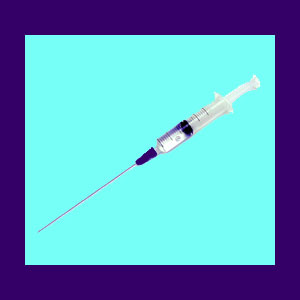
Suffering lingering back pain after an epidural injection is one of the many possible complications of these common needle-based procedures. Epidural injections are used for many purposes, including anesthetic introduction, diagnostic processing, spinal fluid sampling and various intervertebral disc-related procedures. By nature, all of these injections penetrate the epidural space, which contains the dura mater, spinal fluid, the spinal nerves and the spinal cord within the central vertebral canal.
Epidural injections are known to be very painful and most patients fear them for this reason. However, the true risk factors associated with epidurals are far more serious than a few moments of pain experienced while the procedure is taking place. The real risks can spell dire consequences that might last forever or even kill the patient quickly.
This essay focuses on the incidence of suffering chronic pain following an epidural injection and the possible causes of this increased symptomology. For the purposes of this article, we will look at injection techniques that access the epidural space, the dura mater and the spinal components themselves.
New Back Pain After Epidural
Many people receive epidural injections when giving birth or when undergoing specific types of surgery that allow or require them to be awake, while still enjoying complete pain relief. Others must undergo an epidural injection for some diagnostic purpose, such as a lumbar puncture, to ascertain specific criteria about the cerebral spinal fluid.
These people might not have any back pain before the injection, but statistics show that a fair number will have lingering pain after the injection. Pain may persist for days or weeks and then slowly fade, or may become a real chronic concern, creating suffering that does not diminish with the passage of time.
Doctors will rarely concede that the injection is the cause of said pain (mainly to prevent litigation), but it is obvious that in epidural recipients without a history of back problems, the injection certainly does seem to be the most logical cause of the persistent symptomatic complaint.
Escalated Back Pain After Epidural
Many epidurals are given to people who already have back pain, either in an attempt to diagnose the exact cause of pain, such as in discography procedures, or to treat existing pain, such as in nerve block injections. In fact, epidural injections are the most common of all moderate treatment options for virtually all manner of back and neck pain complaints, usually being recommended when more conservative treatment measures fail to provide satisfying outcomes.
A significant percentage of patients who receive epidural injections report worsened symptoms immediately or shortly after the shot is given. In most of these patients, the pain will subside in days or weeks, but in some, the heightened symptoms will persist and become part of their already burdensome back or neck pain ordeal. A small minority of people report completely new symptoms in response to receiving an epidural injection, in addition to their original existing symptom set. These new symptoms range from minor and temporary to chronic and disabling.
Causes of Back Pain After Epidural Injection
Epidural injections penetrate the skin, muscular tissues, connective tissues and then enter into the central spinal canal. Some epidural injections are directed into specific intervertebral discs, while others are directed into the deepest layers of the dura mater. The goal of the procedure will determine its specific anatomical target.
Since the spinal canal contains nerves, the spinal cord, blood vessels and other sensitive and vital tissues, the possibility for injury exists to any of these structures. Additionally, discs can suffer annular tears from needle placement and this might create the ideal circumstances for intervertebral rupture, nucleus extrusion, nucleus migration and/or nucleus sequestration. Any of these circumstances can result in an acute or chronic pain problem.
Some patients might suffer chronic pain that is related to some mindbody trauma of the procedure itself or some fear caused by the procedure. In these cases, the injection acts as a trigger for symptoms through a psychoemotional mechanism instead of actually causing any structural injury beyond the typical result of the puncture.
Other common causes of post-procedural pain include many of the most significant of the risk factors of all epidural injections, such as infection, spinal fluid leak or allergic reaction to any of the substances that might be injected or present on the needle. Dire possible consequences include the necessity to undergo surgical correction of unresponsive CSF leaks or potentially lethal infection of the spinal fluid, spinal cord or brain.
Risks can be reduced when the procedure is performed under live fluoroscopy to increase injection accuracy and when performed by a specialist in the technique with vast amounts of experience.





